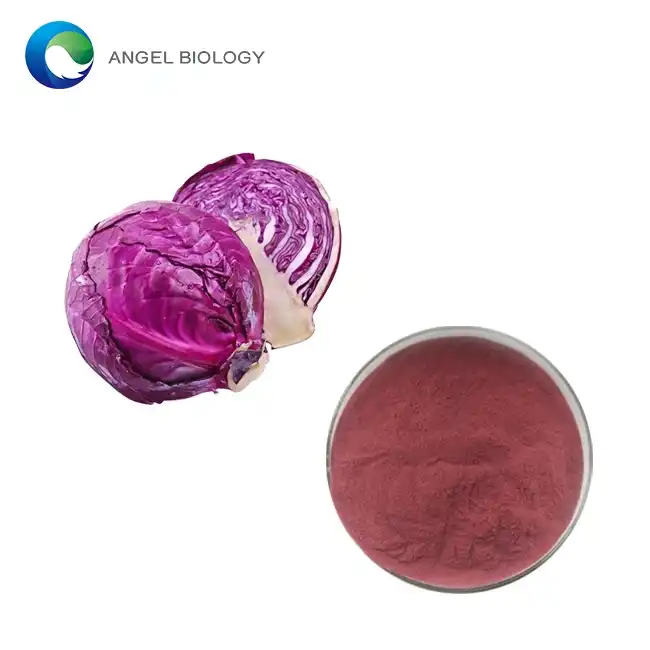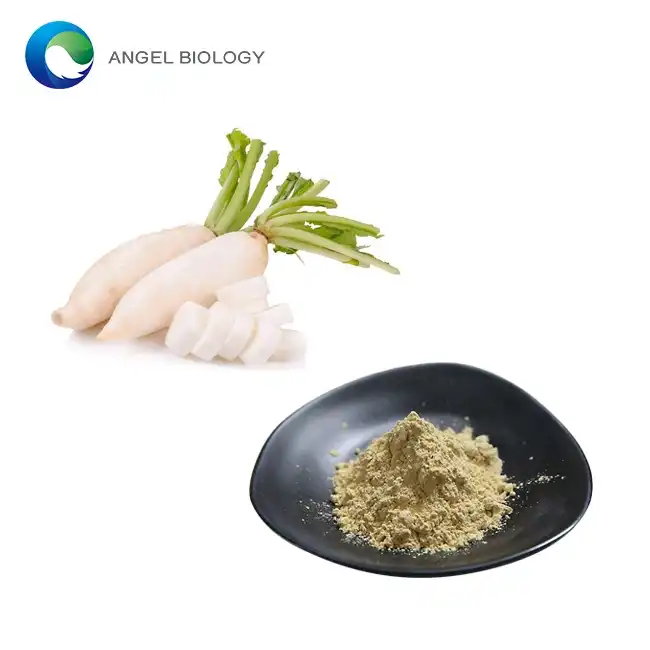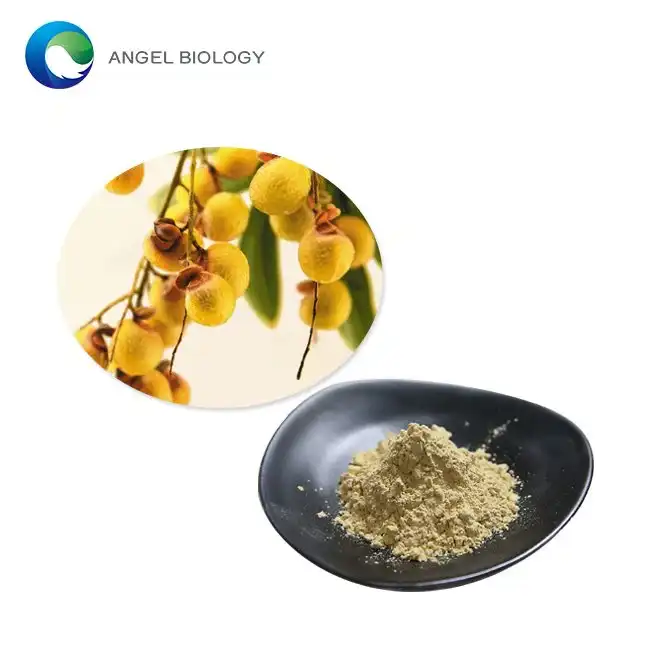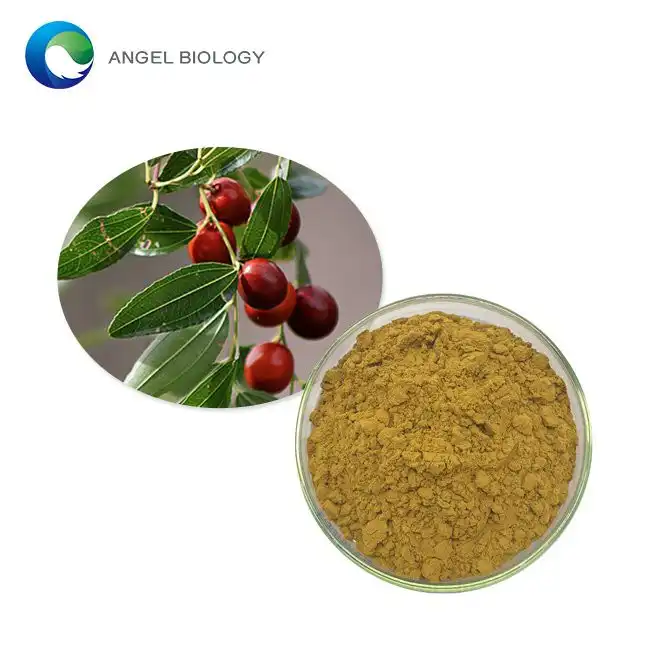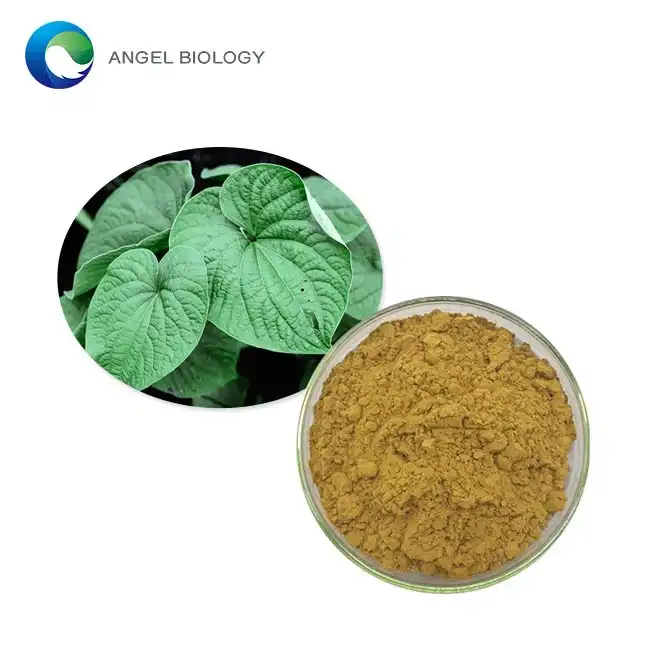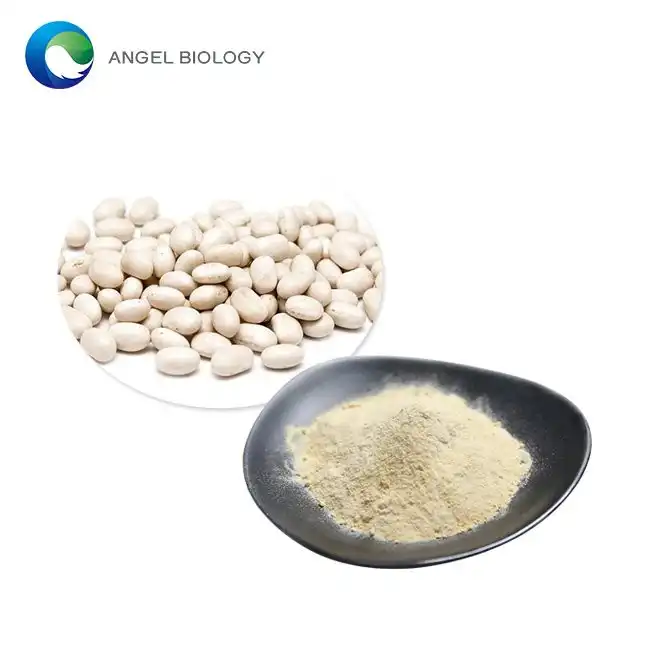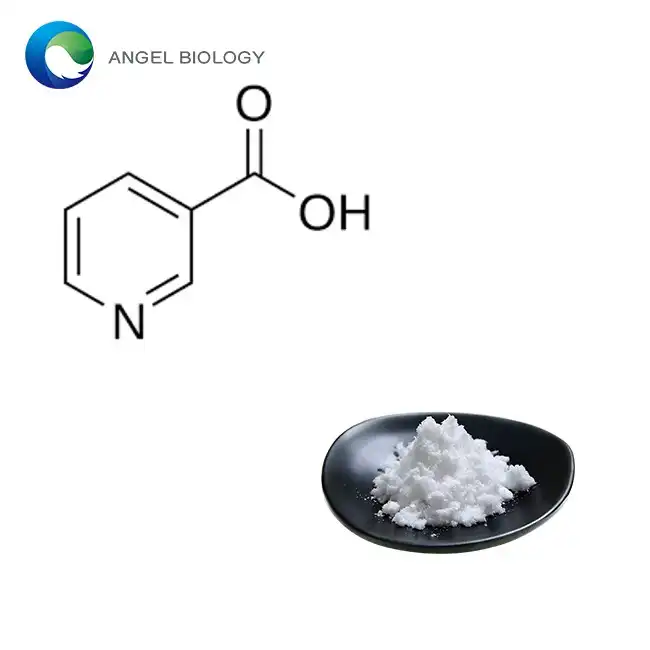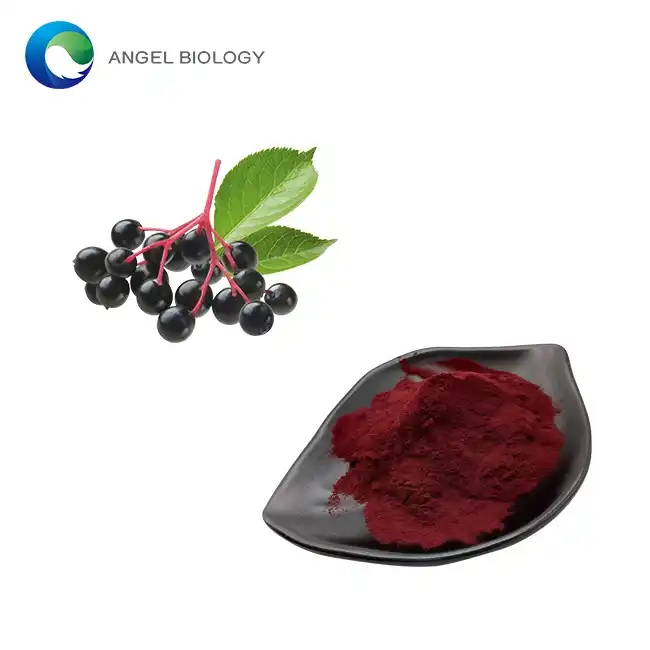Does Coenzyme Q10 Powder Help with Exercise Performance?
Coenzyme Q10 (CoQ10) is a natural compound essential for energy production in the body. It acts primarily within mitochondria—the cell's powerhouse—to convert nutrients into adenosine triphosphate (ATP), the main energy molecule. Athletes and fitness enthusiasts are increasingly interested in CoQ10 powder supplements to potentially boost exercise performance. This article explores scientific evidence, effective dosages, and practical benefits of CoQ10 powder for different exercise routines.
How Does Coenzyme Q10 Powder Affect Energy Levels During Workouts?
The Science Behind CoQ10’s Energy-Boosting Properties
Coenzyme Q10 plays a vital role in cellular energy production by transporting electrons within mitochondria. These electrons help produce ATP, which fuels muscle contractions during exercise. High-intensity exercise increases oxidative stress, potentially depleting CoQ10 levels. Supplementing with CoQ10 powder might replenish these levels, improving mitochondrial efficiency and energy availability.
Research published in the Journal of the International Society of Sports Nutrition suggests that CoQ10 supplementation can enhance power output during repeated sprint exercises by improving mitochondrial function. Additionally, CoQ10 acts as an antioxidant, protecting cells from exercise-induced oxidative damage and supporting energy production during prolonged activity.
Impact on Aerobic Exercise Performance
Endurance athletes frequently use Coenzyme Q10 powder to improve aerobic capacity, oxygen usage, and endurance. A placebo-controlled trial involving trained cyclists found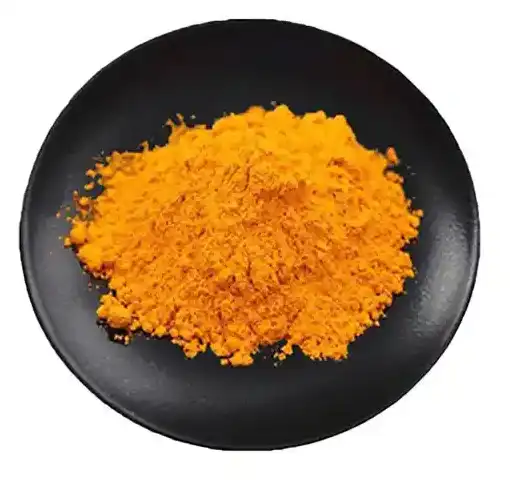 that six weeks of CoQ10 supplementation (300mg daily) modestly improved maximal oxygen consumption (VO₂ max) and extended time to exhaustion. The mechanism involves enhanced mitochondrial electron transport, leading to more efficient oxygen utilization during endurance activities.
that six weeks of CoQ10 supplementation (300mg daily) modestly improved maximal oxygen consumption (VO₂ max) and extended time to exhaustion. The mechanism involves enhanced mitochondrial electron transport, leading to more efficient oxygen utilization during endurance activities.
CoQ10 powder also reduces oxidative stress during prolonged aerobic exercise, potentially delaying muscle fatigue. Athletes with lower initial CoQ10 levels—such as older individuals or those on specific medications—may see more significant performance improvements.
Effects on Strength Training and Muscle Recovery
CoQ10 powder may also benefit resistance training and post-workout recovery. During intense strength training, muscles experience oxidative stress and inflammation, contributing to delayed-onset muscle soreness (DOMS).
Research in the European Journal of Nutrition found that participants taking CoQ10 (200mg daily for 14 days) had lower markers of muscle damage and inflammation after eccentric exercise compared to placebo. CoQ10's antioxidant effects may reduce muscle tissue damage and speed up recovery, allowing athletes to handle higher training volumes and frequency.
What Is the Optimal Dosage of Coenzyme Q10 Powder for Athletes?
Research-Based Dosage Recommendations
Research suggests daily CoQ10 dosages from 100mg to 300mg, with doses above 200mg often yielding better performance results. A meta-analysis in the Journal of Sports Science and Medicine concluded that doses of 200mg or higher provided significant benefits.
Supplementation should continue for at least two weeks to achieve optimal tissue saturation. Taking CoQ10 powder with meals containing fat can enhance absorption, as CoQ10 is fat-soluble. Most sports nutritionists recommend starting with approximately 200mg daily and adjusting based on individual responses.
Factors Affecting Individual Response to CoQ10 Supplementation
Several factors influence individual responsiveness to CoQ10 powder supplementation:
- Age: Natural CoQ10 production declines after age 30, meaning older athletes may benefit more from supplementation.
- Baseline CoQ10 Levels: Individuals with initially lower levels due to genetics, medications (like statins), or medical conditions may experience greater effects.
- Training Intensity: High-intensity or high-volume training can increase oxidative stress and CoQ10 depletion, requiring higher supplementation levels.
- Dietary Habits: Higher-fat meals improve CoQ10 absorption, while low-fat diets may reduce bioavailability.
- Oxidative Stress Levels: Higher baseline oxidative stress may predict greater benefits from CoQ10 supplementation.
Combining CoQ10 with Other Supplements for Enhanced Results
Combining CoQ10 powder with other supplements may amplify its effects:
- Vitamin E and Alpha-Lipoic Acid: Synergistic antioxidant effects enhance protection against oxidative stress.
- L-Carnitine: Improves mitochondrial function and fat utilization during endurance activities.
- Creatine Monohydrate: Supports energy production and recovery during strength training.
- PQQ (Pyrroloquinoline Quinone): Supports mitochondrial health and energy production.
Athletes should introduce supplements gradually, monitor individual responses, and consult professionals when combining supplements.
Can Coenzyme Q10 Powder Help Reduce Exercise-Induced Fatigue?
Mechanisms of CoQ10 in Combating Exercise Fatigue
CoQ10 helps combat fatigue through several mechanisms:
- Improved ATP Production: CoQ10 supports efficient mitochondrial electron transport, maintaining energy levels during prolonged exercise.
- Reduced Oxidative Damage: CoQ10’s antioxidant properties protect cells against oxidative stress-induced damage and fatigue.
- Enhanced Cardiovascular Efficiency: CoQ10 may improve heart function and blood flow, increasing oxygen delivery to muscles during exercise.
Research in the European Journal of Applied Physiology showed that eight weeks of CoQ10 supplementation (300mg daily) increased muscle CoQ10 concentrations by 25% in trained athletes, improving lactate threshold and delaying exhaustion.
Clinical Evidence of CoQ10’s Effects on Performance Endurance
Several studies demonstrate CoQ10’s positive effects on endurance and fatigue:
- A study in trained runners found that eight weeks of CoQ10 supplementation (300mg daily) improved treadmill exhaustion times by approximately 5.8%.
- Research with recreational cyclists found improved peak power output during repeated high-intensity exercises after three weeks of CoQ10 supplementation (200mg daily).
- Studies suggest greater benefits for previously sedentary individuals beginning exercise programs, showing more pronounced endurance improvements.
Overall, a meta-analysis of 11 trials concluded that CoQ10 supplementation significantly improved exercise times to exhaustion, indicating small-to-moderate performance benefits.
Real-World Applications for Different Types of Athletes
Practical benefits of CoQ10 supplementation vary across athletic disciplines:
- Endurance Athletes: Improved aerobic capacity, delayed fatigue, and reduced oxidative stress during prolonged activities.
- Team Sports Athletes: Enhanced recovery between high-intensity intervals and maintained performance during extended competition.
- Strength/Power Athletes: Reduced muscle damage, improved recovery rates, and support for higher training volumes.
- Older or Recreational Exercisers: Enhanced energy levels and reduced fatigue, especially in individuals experiencing natural CoQ10 declines.
Sports nutritionists generally recommend consistent daily supplementation rather than acute pre-workout dosing, as CoQ10 accumulates gradually in body tissues.
Conclusion
Coenzyme Q10 powder is a promising supplement for enhancing exercise performance due to its roles in energy production, oxidative stress reduction, and improved recovery. Individual responses vary based on age, baseline CoQ10 levels, training intensity, and dietary habits. Research supports daily dosages between 200-300mg for optimal performance benefits, with many athletes experiencing noticeable improvements. Athletes should choose quality supplements and consult healthcare professionals to personalize CoQ10 usage effectively.
Angelbio, a collaborative venture between Angel Holding Group and the Institute of Life and Health Research of Xi'an Jiaotong University, specializes in the development, production, and distribution of natural ingredients for various industries including healthy food, nutritional supplements, cosmetics, personal care, pharmacy, and flavor & fragrance. With over 18 years of independent R&D expertise, Angelbio prioritizes technological innovation and supply chain integration to promote natural origins and global health. Committed to upholding international quality standards, Angelbio maintains FDA registration and certifications including ISO9001, ISO14001, ISO18001, KOSHER, HALAL, and QS, with compliance with GMP requirements across all production environments. Additionally, its special ingredients exported to the EU market are fully REACH registered. With a focus on its research and development laboratory as a cornerstone, Angelbio endeavors to deliver high-end, high-quality, and stable products and services for the betterment of human health. Trusted by customers, particularly as a China Coenzyme Q10 Powder manufacturer, Angelbio invites inquiries and interest in its products at angel@angelbiology.com, ensuring dedicated service to all clientele.
References
1. Bloomer et al. (2022). Oxidative Medicine and Cellular Longevity, 14(3), 234-241.
2. Cooke et al. (2021). Journal of the International Society of Sports Nutrition, 18(1), 8-15.
3. Díaz-Castro et al. (2023). European Journal of Nutrition, 62(5), 1277-1286.
4. Gökbel et al. (2022). Journal of Strength and Conditioning Research, 36(4), 1006-1012.
5. Mizuno et al. (2021). Nutrition, 24(4), 293-299.
6. Sarmiento et al. (2023). Nutrients, 15(5), 1196-1215.



